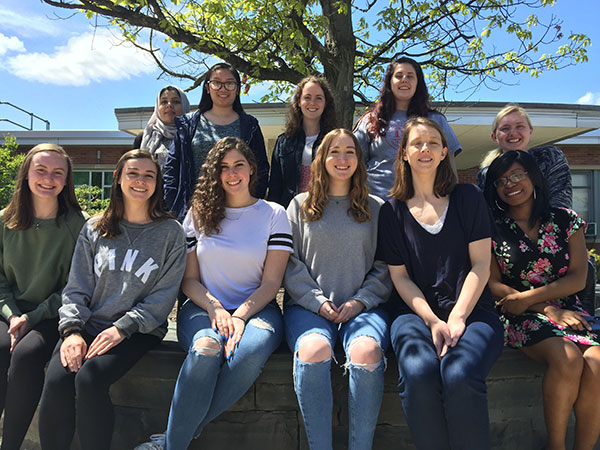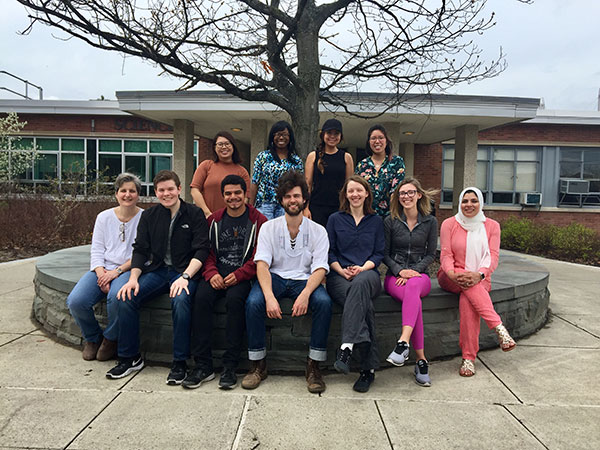Laboratory for Anthropometry and Biomarkers
Laboratory Director: Katherine Wander (profile)
About
The Laboratory for Anthropometry and Biomarkers supports health research conducted outside of a clinical setting, particularly in resource-limited settings. We specialize in gathering biological information through techniques that are minimally-invasive and robust to challenging field conditions, including unreliable or absent electricity, limited or absent clean water, long travel times and poor road conditions, and high humidity and dust.
To facilitate population-based research in challenging and remote field settings, we rely on "rough-tech", cost-effective tools—such as minimally-invasive specimen collection techniques, analysis of alternative biological specimen types, and point-of-care microdevices—to collect data in remote and challenging settings.
Technology
Anthropometry: We use robust, transportable, low-cost instruments to measure physical characteristics such as height, weight, and skinfold thickness in a non-invasive manner in remote settings.
Enzyme Immunoassays: We use both traditional and multiplex assay systems to evaluate a variety of biomarkers—measurable characteristics, including biological products circulating in blood, secreted in saliva, or excreted in urine, that provide information about an entire physiological system—including indicators of inflammation, nutrition, and stress.
Specimen Types: We support use of alternative specimen types—urine or saliva instead of serum—and specimen collection and storage techniques—dried blood spots instead of serum—to facilitate population-based research in remote settings.
Point-of-Care Measurement: We use "point of care" (POC) diagnostic tools—such as hemoglobinometers to identify anemia and hematofluorometers to identify iron deficiency—in remote settings to minimize needs for cold storage and transportation of specimens and to provide useful information to our local healthcare provider partners.
Current Projects
Publications
- Lactose in human milk is associated with lower rates of infection during a drought
- Iron nutrition and COVID-19 among Nigerian healthcare workers
- Do healthy people migrate more? A 21-year follow-up of a rural cohort in Bangladesh
- Quantitative and qualitative analysis of stability for 16 serum immunoregulators over 50 freeze–thaw cycles
- Maternal and infant predictors of proinflammatory milk immune activity in Kilimanjaro, Tanzania
- Does the immune system of milk increase activity for infants experiencing infectious disease episodes in Kilimanjaro, Tanzania?
- Betel quid use is associated with anemia among both men and women in Matlab, Bangladesh
- Maternal stress and hair cortisol among pregnant women following hurricane Florence
- Human milk lactoferrin variation in relation to maternal inflammation and iron deficiency in northern Kenya
- Characterizing the extent human milk folate is buffered against maternal malnutrition and infection in drought-stricken northern Kenya
- Tradeoffs in milk immunity affect infant infectious disease risk
- Context Specificity of “Market Integration” among the Matrilineal Mosuo of Southwest China
- Biocultural Strategies for Measuring Psychosocial Stress Outcomes in Field-based Research
- A multicenter analytical performance evaluation of a multiplexed immunoarray for the simultaneous measurement of biomarkers of micronutrient deficiency, inflammation and malarial antigenemia
- Labor migration is associated with lower rates of underweight and higher rates of obesity among left-behind wives in rural Bangladesh: a cross-sectional study
- Social support, nutrition and health among women in rural Bangladesh: complex tradeoffs in allocare, kin proximity and support network size
- In vitro stimulation of whole milk specimens: A field-friendly method to assess milk immune activity
- Matriliny reverses gender disparities in inflammation and hypertension among the Mosuo of China
- High altitude adaptations mitigate risk for hypertension and diabetes-associated anemia
Students
The Laboratory for Anthropometry and Biomarkers supports graduate student training and independent research. Interested current and prospective students should contact Laboratory Director, Katherine Wander

